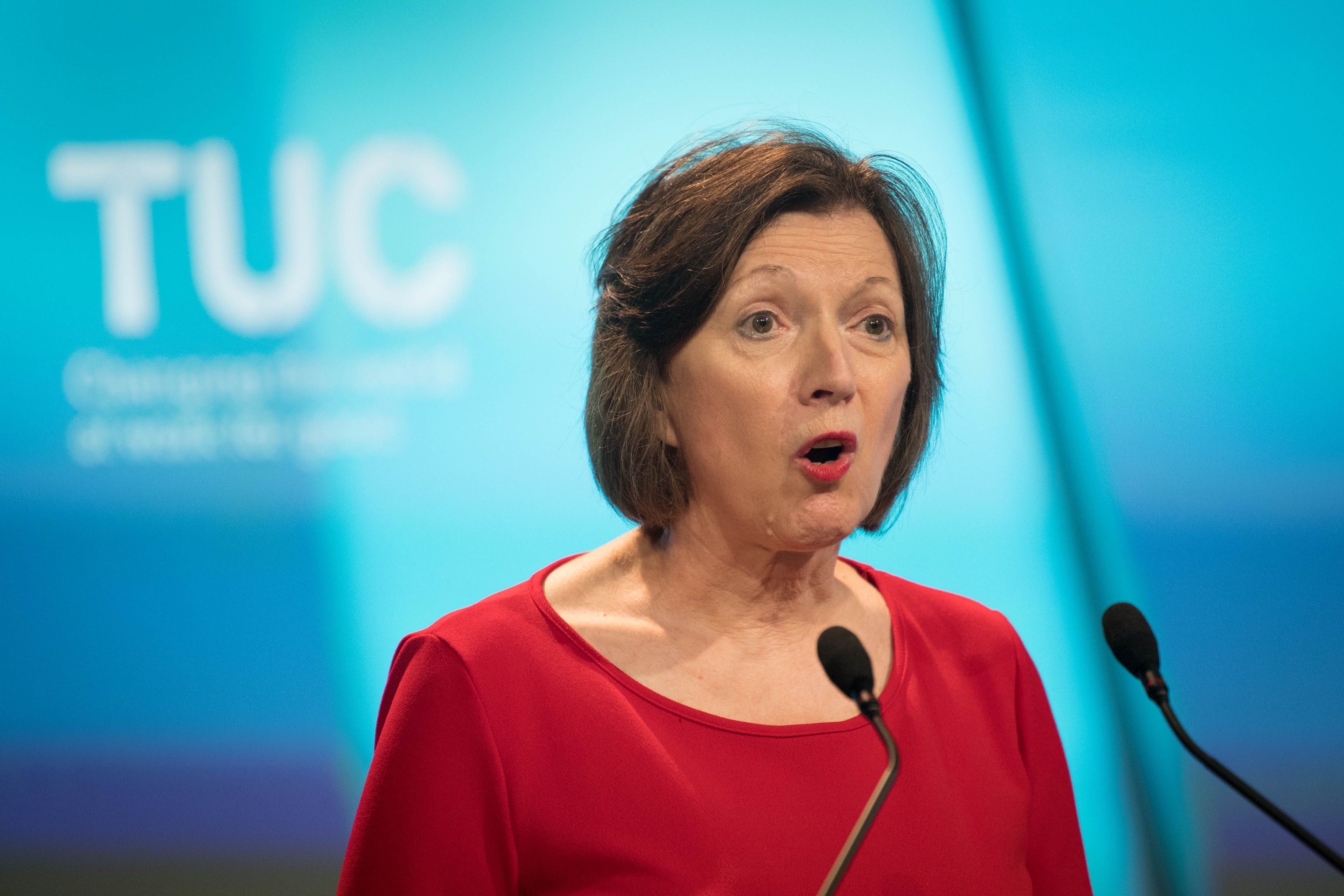Cutting self-isolation period will not fix country’s sick pay problem – TUC
Around 267,800 workers in private firms were self-isolating without decent sick pay or any sick pay at all in mid-December, a report said.

Your support helps us to tell the story
From reproductive rights to climate change to Big Tech, The Independent is on the ground when the story is developing. Whether it's investigating the financials of Elon Musk's pro-Trump PAC or producing our latest documentary, 'The A Word', which shines a light on the American women fighting for reproductive rights, we know how important it is to parse out the facts from the messaging.
At such a critical moment in US history, we need reporters on the ground. Your donation allows us to keep sending journalists to speak to both sides of the story.
The Independent is trusted by Americans across the entire political spectrum. And unlike many other quality news outlets, we choose not to lock Americans out of our reporting and analysis with paywalls. We believe quality journalism should be available to everyone, paid for by those who can afford it.
Your support makes all the difference.More than 250,000 workers were self-isolating last month without decent sick pay or any sick pay at all, a new study has suggested.
The TUC said reducing the self-isolation period to five days will not fix the country’s “sick pay problem”.
The union organisation said workers on low or no sick pay face the “impossible choice” of self-isolating and facing hardship, or putting food on the table but potentially spreading the virus.
The TUC said its research estimated that around 267,800 workers in private firms were self-isolating without decent sick pay or any sick pay at all in mid-December.
No-one should be forced to choose between doing the right thing and self-isolating or putting food on the table
Almost 210,000 workers had to rely on statutory sick pay and 57,900 got no sick pay at all, said the report.
The TUC said its analysis of official data estimates that 2.7% of the private-sector workforce – around 723,900 workers – were off work with Covid-19 in the two weeks up to Boxing Day.
Unions have complained that the UK has the least generous statutory sick pay in Europe worth £96.35 per week – around 15% of average earnings, compared to an OECD average of over 60% – and is only available to employees earning £120 a week or more, meaning two million workers, mostly women, do not qualify.
The TUC has also warned against employers cutting sick pay for unvaccinated staff, saying it will not encourage take-up.
TUC general secretary Frances O’Grady said: “No-one should be forced to choose between doing the right thing and self-isolating or putting food on the table.
“But that was exactly the choice facing a quarter of a million private-sector workers last month, as the Omicron variant raged across the country. This is a serious public health failure.
“It beggars belief that two years into the pandemic statutory sick pay is still too little to live on and two million workers can’t get any sick pay at all.
“Ministers can’t continue to turn a blind eye to this vital public health tool. We need decent sick pay – paid at the real living wage – available to everyone.
“Unions have been encouraging everyone to get vaccinated and boosted, but cutting sick pay is no way to encourage workers to get the jab.
“It would be an own goal for public health, risking further transmission of the virus.”
A Government spokesperson said: “It’s up to employers to determine their sick pay policies but we have been clear that employees who can’t work because they’re self-isolating may qualify for Statutory Sick Pay.
“Many employers choose to pay more than the minimum level and there is also a comprehensive package of financial support in place for workers who need to self-isolate – including a £500 payment for those on the lowest incomes who have been contacted by NHS Test and Trace.